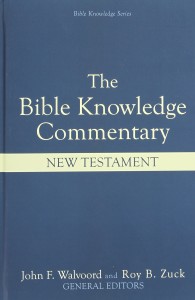The New Covenant in General: An Eternal Redemption
HEBREWS 9:11-15
The New Covenant in General: An Eternal Redemption
ESV Hebrews 9:11 But when Christ appeared as a high priest of the good things that have come, then through the greater and more perfect tent (not made with hands, that is, not of this creation) 12 he entered once for all into the holy places, not by means of the blood of goats and calves but by means of his own blood, thus securing an eternal redemption.
13 For if the blood of goats and bulls, and the sprinkling of defiled persons with the ashes of a heifer, sanctify for the purification of the flesh,
14 how much more will the blood of Christ, who through the eternal Spirit offered himself without blemish to God, purify our conscience from dead works to serve the living God.
15 Therefore he is the mediator of a new covenant, so that those who are called may receive the promised eternal inheritance, since a death has occurred that redeems them from the transgressions committed under the first covenant.
9:11–12. The author then brought the discussion which began in 8:7 to a fitting conclusion. He had shown that the Old Testament anticipated a better New Covenant (8:7–13) and that the ritual of the Old Covenant, carried on in an “earthly sanctuary,” pointed to its own inadequacy (9:1–10). Now he set forth the superiority of Christ’s service as Mediator of the New Covenant (vv. 11–15).
The NIV rendering of verse 11 is questionable. It is not likely the writer meant to say that Christ … went through the greater and more perfect tabernacle, since this cannot be distinguished from “the most holy place” which He entered according to verse 12. It is probably better to take the original word translated “through” (dia) and connect it with came as High Priest of the good things that are already here (or, per most Gr. mss., “the good things which were to come”). In that case, instead of “through” the word can be translated “in connection with” and the total statement expresses the idea that Christ’s high-priesthood is linked with “the greater and more perfect tabernacle” rather than the “earthly” one previously described (vv. 1–5).
When Christ entered the most holy place once for all by His own blood (v. 12; cf. Christ’s blood in v. 14; 10:19, 29; 13:20) rather than by animal blood, He likewise demonstrated the superiority of His service because His blood had obtained eternal redemption. Thus the value of His sacrifice is immeasurably greater than the animal offerings of the Levitical arrangements. A perfect ransom price had been paid for human “redemption,” and because it need not be paid again (this sacrificial act was “once for all,” ephapax; cf. 7:27; 10:10) that redemption is an “eternal” one. – Hodges
9:13–14. This “eternal redemption” through which the blessings of the New Covenant (cf. 8:10–12) have reached all believers, should affect the way believers serve God. Old-Covenant rituals served for the ceremonially unclean and only made them outwardly clean. But the blood of Christ can do much more. His was a sacrifice of infinite value because through the eternal Spirit He offered Himself unblemished to God. With this lovely assertion, the writer of Hebrews involved all three Persons of the Godhead in the sacrifice of Christ, which magnifies the greatness of His redemptive offering. “Unblemished” (amōmon) fittingly describes Christ’s perfection (cf. 4:15; 7:26) for it is also used of spotless animals brought for sacrifice.
Such a great accomplishment ought to cleanse our consciences from acts that lead to death, but the expression “acts that lead to death” is literally “dead works” which in this context seems to refer to the Levitical rituals that, in contrast with the work of Christ, can never impart spiritual life. As also in 6:1, where such “acts that lead to death” are referred to, the writer wished his readers would give up all thoughts of returning to Old-Covenant rituals. Their consciences ought to be perfectly free from any need to engage in such things and, retaining their confidence in the perfect efficacy of the Cross, they should hold fast their profession and serve the living God within the New-Covenant arrangements.
9:15. To do so is to retain the hope of an eternal inheritance (cf. “eternal redemption” in v. 12 and “the eternal Spirit” in v. 14) which has been promised to recipients of New-Covenant life. Christ is the Mediator (cf. 8:6; 12:24) of that covenant, and the “inheritance” is available to those who are called since the death of the Mediator has freed them from all guilt derived from the sins committed under the First Covenant.
The author was here perhaps countering the appeal of the sectarians, or others, to the “guilt feelings” of those Jewish Christians who must often have been charged with deserting their ancestral faith. But the blood of Christ ought to quiet their consciences permanently and lead them to pursue the “eternal inheritance” which the New-Covenant relationship brought them. OF COURSE THE WRITER MEANT HERE AS ELSEWHERE THAT IT IS ONLY “THROUGH FAITH AND PATIENCE” THAT HIS READERS COULD “INHERIT WHAT HAS BEEN PROMISED” (6:12); BUT IF THEY WOULD REST THEIR CONSCIENCES AT THE CROSS, THEY COULD PURSUE THIS HEIRSHIP UNDISTRACTEDLY. – Hodges in The Bible Knowledge Commentary
Professor Thomas A. Rohm



